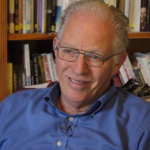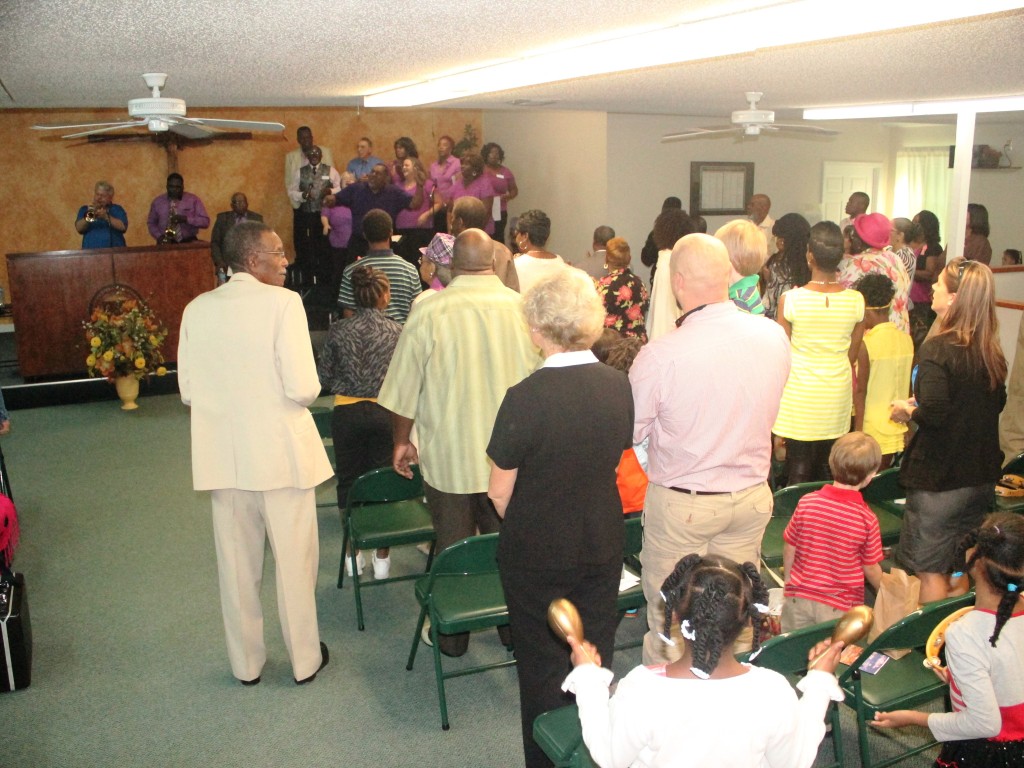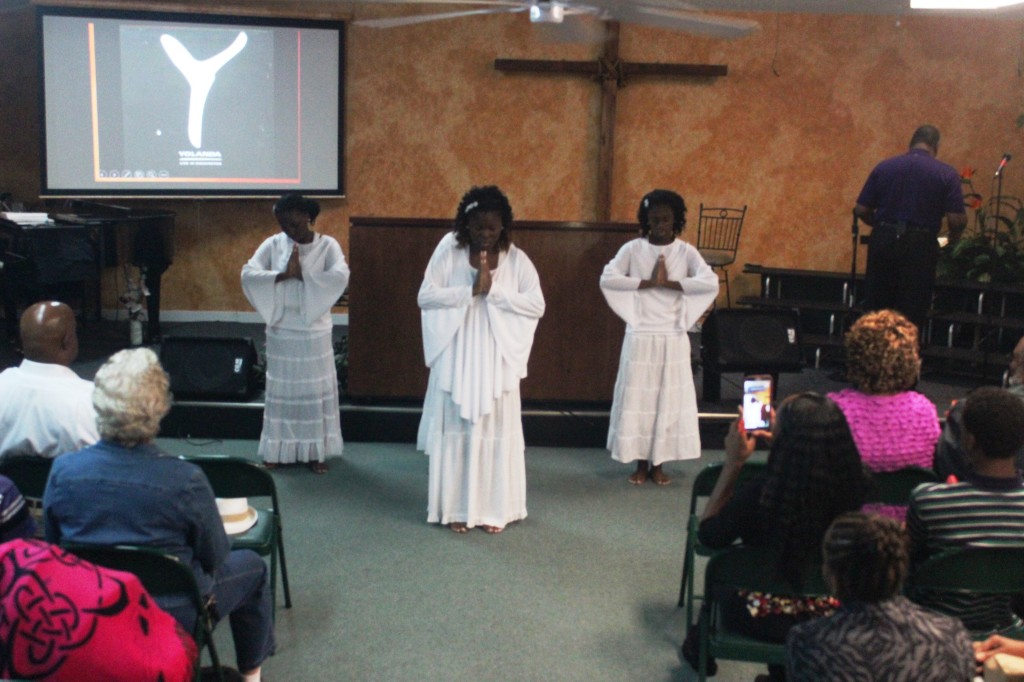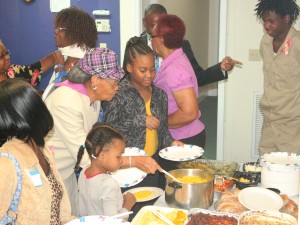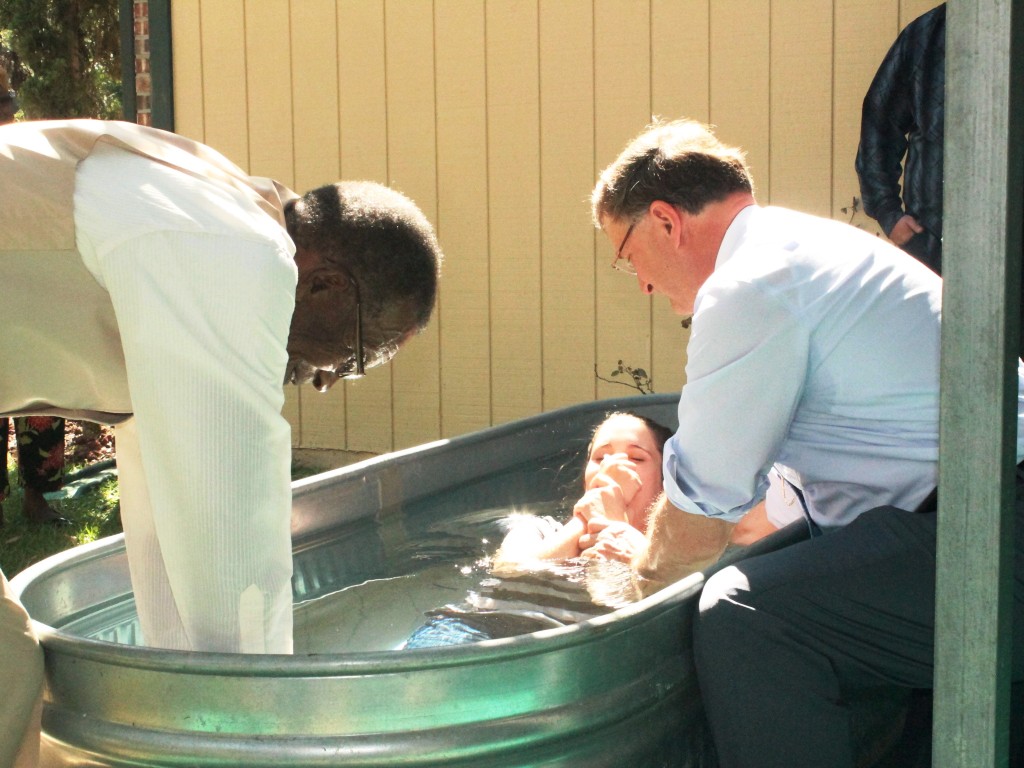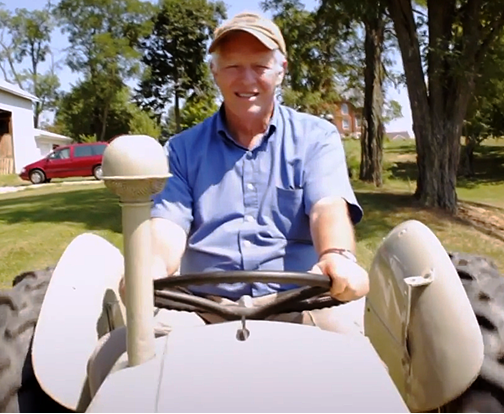In an essay entitled “Guidelines to an Understanding of the Person and Work of the Holy Spirit,” Dr. Gary Deddo offers an incarnational, Trinitarian perspective on the doctrine of the Holy Spirit. We are publishing his essay serially in seven parts. Here is part six (to read other parts, click on a number: 1, 2, 3, 4, 5, 7).
The Spirit and sovereign grace
There are two words I like to use to powerfully remind us about the very personal nature and dynamic relationship we have with God the Spirit, and they apply equally to the Father and the Son. Those words are sovereign grace. How do these words help us faithfully grasp the character of the Spirit’s working towards us? Sovereign means that the Holy Spirit works as he wills according to his own nature. We’re talking about God the Spirit. He is just as personal as God the Father and God the Son—not less personal and not an abstract machine, magic, electricity or some impersonal force. The Spirit is sovereign.
The Holy Spirit is a personal agent. He has a will. We could say “he has a brain.” He acts as the sovereign God. We can’t forget the sovereignty of God and start thinking that we’re moving the levers connected to the Holy Spirit who is under our control like a vending machine or electricity or even a genie. Thinking and acting in that way amounts to denying the Spirit’s sovereignty. It makes me sovereign over an impersonal power. In that mode, I simply want to know: How can I get control of this power and make good use of it? What steps, what techniques, what conditions do I need to fulfill to get it to work?
The error of simony
Those who foster such an approach to the Spirit would do well to remember a certain story from the books of Acts. Do you remember Simon the sorcerer? He became a convert but after that, what did he want to do? As soon as he found out about this awesome power of the Holy Spirit, he wanted to purchase it from Peter. Buy it! Why did he approach the Spirit in that way? He was formerly a magician. Apparently, his magician mind hadn’t been sanctified yet. He didn’t know the nature and character of this Holy Spirit. He thought like a magician: “Wow, what power! Power for good. If only I could get hold of it like the power I had as a magician. Then, I could do miracles for the glory of God!”
Simon was still thinking like a magician, looking to possess and control the power of the Spirit. He had switched in his desire for a different power, but he hadn’t yet changed his approach to power. He switched loyalty to the Holy Spirit, but he approached the Holy Spirit in the same way he did evil power. His mind had not yet been converted. He was repudiated by Peter with some very sharp words: “May your silver perish with you, because you thought you could obtain God’s gift with money!” He was told to repent immediately about this because God’s power cannot be used or controlled by us (Acts 8:14-24).
This is one of the first heresies reported in the New Testament besides denying the divinity of Jesus and his being raised from the dead. This heresy actually has a name, called “simony.” It’s the desire to control the Holy Spirit as if he were an impersonal power and not sovereign Holy God. Such a view does not regard the Spirit as free to blow where he wills, as one who works according to sovereign grace.
When the specific character and mind of the Holy Spirit is not taken into account, the door is left somewhat open for us to think we can shape the Spirit into our own image and use him/it for our own purposes. However, when known in relationship to the Son and the Father, that door is closed. Simon needed to see, “Oh, this is the Spirit of the Father and the Son” not just an impersonal power. The Spirit shares God’s sovereign and freely-given grace. There is nothing impersonal about the power of the Spirit. In fact, we could say the Spirit is the most personal and the most sovereign working of God, not only around us but in us!
The problem with Simon Magnus was he wanted to use the Spirit. It wasn’t that he wanted to use it for evil things. He saw the apostles healing people. He said, “I want to have that power.” What was wrong was his entire approach to the Spirit, his whole understanding of who the Spirit is. He wanted to use the power to serve like the apostles, but his desire was to possess and control, to manipulate or to think that the Spirit needed to be conditioned or appeased to bless. That was to think of the Holy Spirit as if he were really an evil spirit.
Thinking he needed to or even could buy the Spirit misrepresents the nature and the character of the Holy Spirit who is at work with the apostles. The apostles received the Spirit as a gift of sovereign grace. You could not buy the Spirit anymore than you could purchase God’s grace. They had a whole different kind of relationship with the Holy Spirit than Simon was imagining. They must have been shocked when he came up to them and asked, “Hey, can I buy some of that power too?” They realized that he was thinking like he used to—thinking of the Spirit in the same way as his former magical powers, They recognized immediately that Simon was entirely wrong. The Holy Spirit is not just another magical power. This was a huge lesson the church needed to learn at the beginning. It still is!
For us to take to heart that lesson is really important as well, since the temptation to simony never completely disappears. The story reminds us of who the Holy Spirit is in relationship to the Father and the Son. The Holy Spirit is sovereign and not under our control. The Holy Spirit is also gracious because he doesn’t need to be cajoled, conditioned or manipulated into working. Nor does he need to be persuaded. He’s not locked up in some kind of transcendent bottle, waiting for us to get him out. The grace of the Spirit is moving before we even ask or think of it. His ministry is one of sovereign grace, as are those of the Son and the Father—the Father, Son and Spirit are one in being and one in action. If we have to condition or persuade or somehow exert some influence on the Spirit to get him to work, then actually, the Spirit no longer is operating out of sovereign grace.
Ironically, it’s possible to be just as legalistic and contractual towards the Spirit as towards the Father or the Sabbath or salvation. Somehow it’s possible for some to claim that the blessings of the Spirit are conditioned by us, are dependent on us. A magical or impersonal view of the Spirit is a form of legal relationship. But the gracious work of the Holy Spirit is a continuation of the gracious working of the Father and the Son. The Spirit always works graciously.
How should we approach the Spirit?
That brings up the question as to whether it makes any difference how we approach the Spirit. The answer is yes it does! But whatever difference is made cannot amount to changing the sovereign grace of the Spirit into its opposite! The difference is in our reception, awareness and participation in what the Spirit is graciously and sovereignly doing. We can resist the Spirit. We can participate or not. We can be more or less ready to recognize and receive the full benefits of the Spirit. But the Spirit is not dependent on us to initiate and make the first move. In fact, the Spirit ministers to enable us to do just those things, even overcoming our resistance as he shares with us Christ’s own responses to the Spirit in our place and on our behalf. The Spirit moves us, frees us, guides us. And we then can respond.
So, yes, we can describe ways we can participate and ways to grow in our understanding and in our recognition of the ministry of the Spirit. When we do recognize the ways of the Spirit, we’ll respond: “Wow. That was the work of the Holy Spirit. It is amazing. Praise God, Father, Son and the Holy Spirit! Yes, that was a marvel of sovereign grace we just saw manifested among us.”
We can participate more fully and be filled with the Holy Spirit’s glory or we can resist or avoid it. But if we resist, we are resisting a gracious work—one that is freely-given like Christ’s gracious work. We shouldn’t think about participating in the life of the Spirit as if it’s not freely-given grace that comes from God’s sovereignty. When we seek to participate more fully and through prayer seek to be filled with the Spirit, we are not conditioning the Spirit’s working. We’re not earning his blessing and presence. We’re especially not “channeling it”—not manipulating, controlling or determining the Spirit’s working or manifestations.
These are important things to remember, since we ought always to affirm the gracious sovereignty of the Spirit. This clear understanding will prevent us from committing simony, from flipping over into that false view, since there will always be temptations to go in that direction. We like techniques and we like to make God predictable. When we’re in big trouble, we often feel a need to bring some kind of pressure on God to act in this situation. Perhaps we’re desperate. Or maybe we’re curious to discover some technique or formula or to identify some pattern or secret where we hold the key.
Especially in times of desperation, we want God to be more like a magical and impersonal power. Sometimes God’s sovereignty doesn’t align with our will, our speed or our immediate needs. At such times, we’re sorely tempted to be like Simon Magus, saying to ourselves, “I just want to know the formula, God, because something needs to happen here and you’re not doing it!” At that point, evil temptation can enter our minds and suggest: “God didn’t show up! You know why? Because it’s up to you and you’re missing it. If only you knew the formula. If only you were holy enough. If only you were sincere enough. If only your expectations were high enough. If only your church was more united. If only you read the Bible more. If only…if only…if only x, y or z had been done, then maybe God would show up!” But every “if only” makes us the key, it says that grace isn’t grace after all. Each if-only throws us back on ourselves and undermine our trust, our faith in God. Each is a method to purchase blessings, not participation in the sovereign grace of God.
The working in the Spirit is of the same character as the saving work of Christ. We receive it in the same way, by trusting God to freely give it to us. Yes, there are ways to participate with what the Spirit is doing but the Spirit will never relinquish his sovereignty nor cease to be gracious and somehow become conditional and set up a legal relationship with us. But we can be tempted, and certain teachings tend to push us in that direction.
What’s it like to participate with the Spirit?
Who the Spirit is carries a number of implications we can draw out with the help of other insights from the biblical revelation. Let’s explore our participation in this gracious ministry of the Holy Spirit.
Sanctification. The first thing is that the primary ministry of the Holy Spirit is transforming us, sanctifying us and enabling us to share in that new nature Christ shares with us. This is primarily a work in us. Transformation into Christ-likeness is key. Christian maturity is of central concern in New Testament teaching. The Christian life is presented there as one of continual growth in faith, in hope and in love for God and that life lived out towards others. There are many obstacles to be overcome or avoided in taking that journey of spiritual maturity and health.
These obstacles are not just internal temptations but also external pressures, ways of living, habits, even mindsets that are not engendered by the Spirit but by “the world, the flesh and the devil.” So it’s an uphill battle. It is a fight of faith. It is not easy, but it can be joyful and peaceful. It involves dying to the old self over and over again and being raised up in newness of life, being restored. The Christian involves repentance and renewed faith, hope and love. It involves forgiving and asking forgiveness. The Spirit enables us to share more and more in the new life we have in Christ, so that we live in daily union and communion with him, dying and being raised up every day. He, our crucified and risen Lord, is the center of our life.
Fruit and gifts. There is a good amount of information on the Holy Spirit involving both the gifts of the Spirit and the fruit of the Spirit. These indicate something of the shape of the Spirit’s ministry. The Spirit is a “Giving Gift,” as one theologian put it. When we hear of gifts, we often think of abilities or capacities to do something, to serve in certain ways. But notice that the fruit of the Spirit is also given by the Spirit! The fruit points to the qualities of the life of Jesus that the Holy Spirit is building into us. The ultimate definition of the fruit and the gifts is demonstrated for us in the life of Jesus lived out in the power of the Spirit.
Note that part of the fruit of the Spirit is the gift of “self-control,” which is essential to sharing in the life of Christ by the Spirit. It’s often said that the Spirit is all spontaneity, “letting go—going with the flow,” aligned with our feelings or with love. These characteristics are then put in direct contrast with our thoughts, mind or truth or with any kind of intentional process or, well, self-discipline. But the fruit of self-control serves as a clear reminder that Christian freedom involves self-discipline. The Spirit can never be used as an excuse for irresponsibility. The Spirit always joins truth with love, freedom with self-discipline, feelings with order or structure, especially with the moral order of right and good relationships. The Holy Spirit brings wholeness to life, not compartmentalization.
The gifts of the Spirit mentioned by Paul refer to the variety of ways members of the body of Christ are enabled to serve one another. We will not take time to explore the individual gifts. But let me point out a problem that often arises when there is a strong focus on these serving gifts of the Spirit. The problem arises when the serving-gifts of the Spirit are separated from the fruit of the Spirit, or the two are not seen to be in vital connection. Any such disjunction is a huge mistake—it amounts to dividing up the ministry of the Spirit into separate parts and pieces. What often happens in that case is that the gifts of the Spirit are exercised in ways that don’t exhibit the fruit of the Spirit. Serving-gifts used without love, joy, peace, patience, self-control, etc. are being misused! It seems that it has often been assumed that if the gifts come from the Spirit, they can’t be misused. But that is wrong. Even gifts given by the Spirit can be misused, and often are when they are not joined with an equal emphasis on the fruit-gifts of the Spirit.
Jesus: fruit and gifts. The primary work of the Spirit is to deliver all the benefits of Christ to us and in us. That includes both the fruit and the gifts. The Spirit doesn’t give us the option of choosing one kind over the other, placing an emphasis on one and neglecting the other. If we look to the life of Jesus, we see in him no disconnect between the fruit of his character and the quality of his ministry of service to others. These are perfectly joined in his humanity, lived out in perfect communion with the Holy Spirit. So when we talk about Christ’s likeness, we’re talking about the fruit of the Spirit, which then shapes all his ministry service. Jesus lived by the Spirit. He’s one of us. In his life, we see the use of the gifts of the Spirit through the fruit of the Spirit.
Fruit primary, gifts secondary. The fruit is primary, is foundational to the gifts of service. Paul indicates this by teaching that love is the primary thing when he’s talking about the gifts. What went wrong in Corinth is they went ahead with the gifts but exercised them without love. The result was damage to the body. We cannot separate the fruit from the gifts. Fruit is essential to who we are. The gifts are the manifestations of who we are and who we’re becoming in Christ, filled with his likeness or his sanctification, that is, with his fruits.
Perhaps unexpectedly, the Holy Spirit doesn’t directly give us his own sanctification. Rather, he gives us Christ’s sanctification, which was worked out in his human nature. The holiness of the Spirit, if offered to us apart from what Christ accomplished for us in his incarnate life, wouldn’t fit us directly as human beings. We’d just explode. But the sanctification that Christ worked out for us in his humanity, by the Spirit, has become in him suited to us, and that is what the Holy Spirit shares with us.
Love. That’s why, as the Holy Spirit works, we become like Christ, exhibiting the spiritual fruit of his perfected humanity. The primary center of that fruit, as Paul describes it, is love. In his letter to the Corinthian church, he makes clear that love manifests itself through a desire for unity, peace, harmony and upbuilding. The working of the Spirit generates no sense of superiority or competition, possessiveness or even self-sufficiency. Paul’s image of our being differing members of a united body holds these elements together well.
Paul surrounds his discussion of the gifts of the Spirit with the fruit of the Spirit even though he doesn’t use that term but names love as the central aspect of the fruit. The gifts and fruit cannot be disconnected. Any working of the gifts should be a form of loving and serving others. If the gifts do not serve the unity, peace harmony and upbuilding of one another, then they’re not gifts of the Spirit. Like Christ himself, love is a proper test of the Spirit’s working.
Since the Spirit works distinctly with individuals and also with groups to promote unity and harmony, we would not expect the movement of the Spirit to set up some kind of hierarchy of super-spiritual over less spiritual persons. The Spirit wouldn’t foster envy and jealousy, moving some to think or say that “They’re less spiritual than we are” or “Their fellowship is more spiritual than ours.” Nor would anyone be moved to say “I’m less spiritual than they are” or “My gift is more important than yours” or “My gift is less important than yours.” That’s simply not where the Spirit is going to take us. That’s not what the Spirit is about. For in that case the fruit and the gifts would be falling apart rather than being brought together by the Spirit. But they can never come apart because the Spirit is one in his ministry and Person. The Spirit will not foster competitiveness of one trying to be more spiritual than another. Unfortunately that’s what was going on in the church in Corinth.
Freedom for others, not from others. Another expression of the separation of the fruit from the exercise of the gifts arises when individuals insist on using the gift in their own way. Such a person may think, “I’ve got my freedom in Christ and that justifies my using this gift however I see fit!” This is what was going on in Corinth. Certain persons were attempting to use a gift of the Spirit without regard for others. They did so by claiming freedom in Christ. They took freedom to mean they didn’t have to consider how the exercise of their gifts would affect others. But such an orientation is not going to come from the Spirit. The Spirit does not move persons to insist on their own way, even when it comes to serving others. Why not? Because, as Paul tells us in 1 Corinthians 13, insisting on your own way does not demonstrate Christ’s love. Because the gifts are never to be used apart from the fruit. Paul tells us even he, the apostle, does not exercise all the freedoms he may have. Why not? For the sake of the body, he tells us in 1 Corinthians 9:12.
Not seeking my own experience. There is another way in which we can take up an interest in the Spirit without much regard for others. This next point could be more controversial than the previous ones, but it needs to be brought up. Some turn to the Spirit primarily to have a strong, moving or powerful experience. The assumption seems to be that the ministry of the Spirit is primarily to give us an experience of the Spirit itself. The main result sought is being able to say, “I had an extraordinary experience of the Spirit.” Some, by this means, are perhaps seeking security or greater assurance either of their salvation or perhaps of the spiritual growth or maturity.
But a survey of the New Testament doesn’t support such an approach or view of the Holy Spirit. The ministry of the Spirit is not to give us special individual experiences, but to enable us to serve and to build up each other, to help and to assist each other and to deepen the quality of relationships within the Church’s in-reach and its ministry and outreach in service to others.
Yes, we’ll have experiences of the manifestation of the working of the Spirit. But the resulting benefit will not be saying, “Wow, I had an experience of the Spirit. Now if I could just have another one for myself.” We all will have experiences of the Spirit but they’re going to be experiences of love and service and fellowship and joy and worship that look away from the experience itself. The experience is a byproduct of something else the Spirit is doing in us and for us.
It seems Jesus wanted his disciples to learn this lesson when they returned from a short mission trip and had worked miracles. They came back elated that in Jesus’ name they were given authority over demons. Jesus cautions them: “Nevertheless, do not rejoice at this, that the spirits submit to you, but rejoice that your names are written in heaven” (Luke 10:20).
Who we are worshiping and serving is more important than having some particular experience. The Spirit who is not preoccupied with himself is not likely to want to make us preoccupied with him or even ourselves! A focus on seeking after or having individual experiences of the Spirit can actually disrupt the ministry of the Holy Spirit in the Body of Christ. The Spirit will not want to take us in a direction where everyone is saying: “I had an experience and then I had another experience! Let me tell you about them.” Sharing in this way usually brings out responses such as, “Oh, you had an experience. How did you bring that about? Why did you have that experience and I didn’t? Wow, God must not like me,” or, “God must like me (because…well, I can’t say this out loud, but I must be somehow more favored than others) since I was given such an awesome experience that others, too, really should have.” Spiritual pride of this sort can slip in when there is a focus on individual experiences of the Spirit.
So should we avoid talking about the Spirit and his fruits and gifts? No, not at all. But, we can go about it in better or worse ways. In contrast, I suggest that the Spirit leads us to reflect more in this manner: “Wow! Someone noticed some fruit of the Spirit in my life. How did that happen? It must be the work of the Spirit!” Or, “Wow. I actually tried to serve somebody even though I wasn’t sure how, and they benefited in amazing ways that led them to love God more. How did that happen? It must have been by the Spirit! I sure hope by the grace of God I can live in the middle of that more often.”
That response doesn’t make the object the Spirit itself or having some kind of spiritual experience.When I was part of the charismatic movement in the ‘70s, I interacted with many who became Christians but were primarily looking to get high on the Spirit (or Jesus) rather than something else. “I just want to get high on Jesus,” some would say. There were plenty of ministries ready to feed that desire. Certainly, that was a definite move in the right direction.
But often, those whose Christian lives were not much more than going from one “spiritual” experience to another did not experience much of the fruit of the Spirit. The rest of their lives remained pretty much a wreck. There was little fruit and no service. Though they were having or seeking experiences with the Spirit, there was little sign of life transformation. Some did move on, grow and mature. But others didn’t. They seemed stuck, getting “high on Jesus.” Then, sometimes, they’d go back to getting high on other things. Why not? One high is just as good as another, isn’t it? Unfortunately, they were often simply looking for ways to escape their problems or gain affirmation or attention for themselves.
Admittedly, these are complicated situations. The point being, however, that looking to the Spirit for personal experiences doesn’t acknowledge the real, full ministry of the Holy Spirit, who enables us to respond more fully and freely to the truth and reality of God and the gospel.
Next time I’ll make a few more comments about the shape of the ministry of the Spirit that might help us have a healthy approach.
